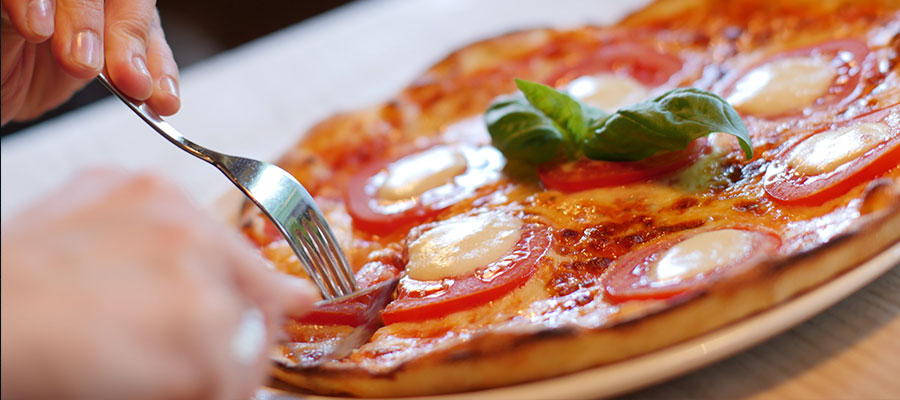What has going hungry got to do with gaining weight?
By Jean Antonello, RN, BSN, obesity and eating disorders specialist and author of The Great Big Diet Lie, How to Become Naturally Thin® by Eating More, Breaking Out of Food Jail and Naturally Thin® Kids, www.naturally-thin.com
It seems an unlikely association at first glance—going without food now and then, and packing on pounds later on. But these two apparent opposites really do go together, and the fact that they appear so contradictory is exactly what keeps this combination so prevalent. We think going hungry is good for us. We think we must tolerate it in order to keep our weight under control. We are a nation of people trying, at least some of the time, to consciously avoid food when we are hungry, whether we are actually dieting or not.
But the fact is, unless we start to recognize that regularly going hungry, for any reason, almost invariably goes with weight struggles, we are in for more of what we already have—rising rates of bulging waistlines.
The bottom line: obesity is a positive adaptive response to an environment where food is intermittently restricted. In other words, the accumulation of excess fat on human bodies is actually a good thing, supporting life. If you think about the role of fat in survival, it is really just stored food to keep bodies alive during famines. So, what kinds of bodies need to store food? Bodies that don’t get enough food when they need it, bodies that go through famine at times. So famines (going hungry) stimulate bodies to store fat to protect against future famines. And there you have it—going hungry and gaining weight.
How do bodies do this?
There are five basic ways that bodies accomplish fat accumulation when stressed by intermittent famines:
- decrease in metabolism (to conserve energy)
- increase in appetite (to ensure fat accumulation when food becomes available)
- cravings change to sweets and fatty foods (to ensure fat accumulation when food choices are made)
- preoccupation with food (to prioritize eating)
- avoidance of physical activity (to conserve energy)
First , when you go hungry, your metabolic rate drops by an estimated 15 to 30%. It’s easy to understand this if you picture yourself lost in a cave for several days. This is a serious boomerang effect for dieters. Then, as hunger is ignored, the appetite tends to soar, preparing you for a binge and the important fat storage that must follow—all this in spite of your determination to stay in control (this time). And cravings change to accommodate the increased need for fat. I like to say that dieters don’t crave broccoli. There’s a reason. Broccoli is a very poor food from which to manufacture fat. Everyone who goes hungry eventually becomes preoccupied with food since food moves to the top of the survival priority list. And lastly, bodies are designed to avoid unnecessary activity in a famine environment. This is no place to waste calories! So sticking with a low calorie-type diet and trying to work out too is bound to trigger physiological rebellion. It’s not all in your head or your bad habits.
So, when you go hungry for any reason (your body does not care about the reason), your body is obliged to adapt, more or less, depending on your genetics. Although many people tolerate going hungry quite well—due to our complex internal emergency fuel storage systems—human bodies do automatically go through this rather amazing list of biochemical adjustments designed to secure fuel for the future.
So, what can you do if eating less only leads to adaptive weight gain and all these appetite and metabolic disturbances? Instead of trying to eat less and exercise more, you need to learn to eat-—when and how much and what kind of food. You need to learn body-controlled eating, letting your body signals govern your food intake: when you eat, and even how much. The parts you need to hone your skills at are: 1. never going hungry and 2. eating only good quality food. Sticking with great quality food is pretty easy once you stop the famines. Such natural eating breaks the famine stimulus and normalizes your appetite and metabolic rate. And, at last, you’ll actually want to exercise!
Jean Antonello is an Obesity and Eating Disorder Specialist and author of three groundbreaking books, including How To Become Naturally Thin® By Eating More, (Avon), Breaking Out of Food Jail, (Simon & Schuster), and the recently released Naturally Thin® Kids: How to Protect Your Kids from Obesity and Eating Disorders for Life (Heartland Book Co.). www.naturally-thin.com

Posted in Articles
